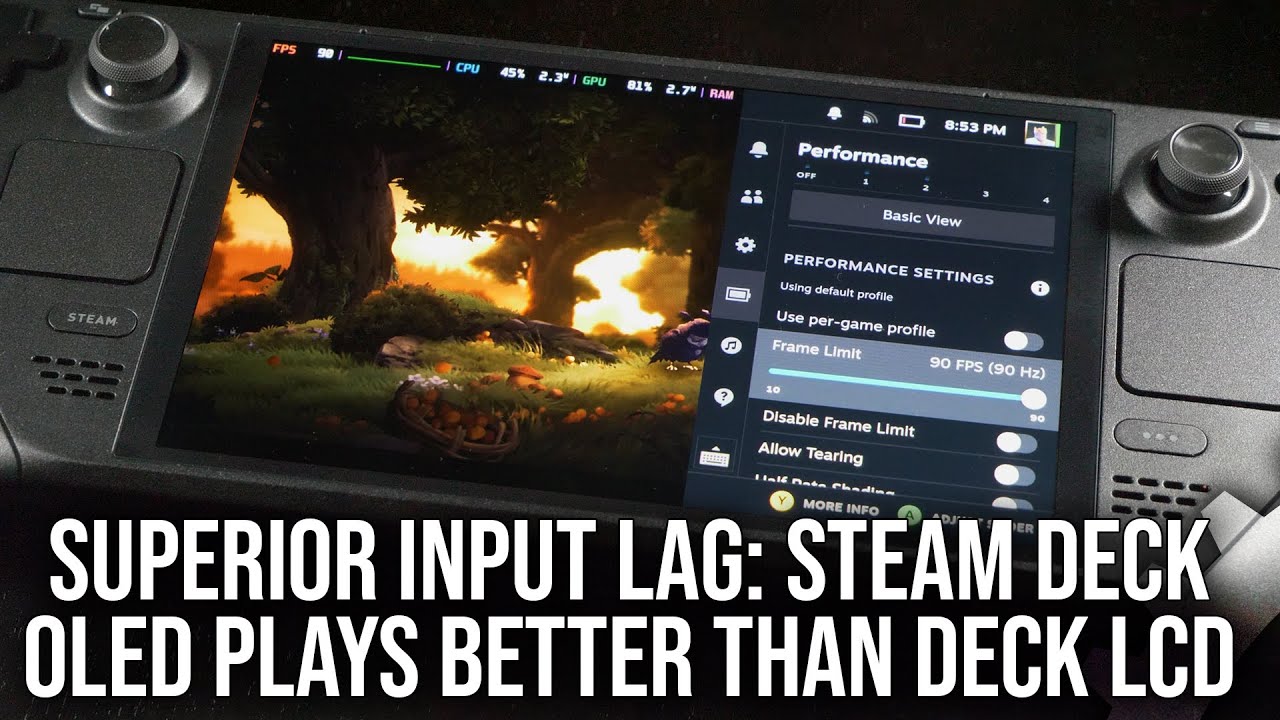Don’t do this to me. I don’t need one. I already have the OG. This is a losing battle for me, I can feel it now.
It’s less than a frame of lag difference, it’s not noticeable.
It’s not so much this article as it is all the articles I’ve seen and expect to see in the future about the ways it’s actually better despite Valve saying it’s not actually that much better.
One frame at 30fps is 33ms, you can most certainly notice 33ms of input delay, that’s the difference between life and death in dark souls
We are not talking about a 30hz display. Also, no, most people can’t tell a 33ms input lag. Again, in the retrogame world, we deal with this a lot. I’ve spent a stupid amount of money to get zero added lag from my retro game setups. But that means we tested a lot.
3-4 extra frames of lag? Yeah, you’ll feel that if you are super sensitive to a particular game. But we’re talking about less than a frame of added lag here.
The tests are literally 30fps
Sometimes, the games were running at 30fps, yes. That doesn’t mean anything. The amount of extra input saved was about 8ms, which is less than a frame of a 60hz display. It’s less than a quarter of a frame of 30fps gameplay. If you really wanna get on that. It doesn’t make it a better situation.
One frame is probably in the context of the screen, not the framerate of the games. (The deck doesn’t have variable refreshrate so the screen will always use the same underlying framerate)
Stay strong. You don’t need it. Plus, they’ll probably be cheaper later.
True. And the limited translucent case is one of the most attractive things making it seem time sensitive, but they also made it easier to replace those bits this time around too, so I will have more personalized options later on.
I’m waiting for a v2. It probably won’t happen for a couple years at least, but I think it plays fine as is and I can wait for a proper upgrade.
It does look tempting though.
Pull the trigger. Sell the old one. Drive the prices of the old ones down to dirt cheap. I might actually buy one then.
Second hand prices are already very cheap. 512s near me selling for $300 with case and charger.
This. Let me buy your neglected deck.
Go the other way. Buy a dock, slap it under a tv and forget it has a screen entirely.
Plug a flirc into the dock to wake the deck with your AV/TV, and you’ll even forget it has buttons too.
This is how I’ve used mine almost 100% of the time. I got it because a gaming laptop I had was getting a bit old. I use the Deck like I used that laptop. Moving from room to room as needed and hooked up to a TV in each.
I’m stuck in bed some days, so having something that is easily moved like the Switch has been great.
Fortunately I already have a laptop with a near-OLED display, otherwise I’d be tempted.
(“Near-OLED” means an ASUS Nebula HDR display BTW. It’s an LCD display but the brightness and color gamut are more like an AMOLED display. I have mixed feelings about ASUS in general but god damn do they make a pretty LCD panel.)
Was there input lag on LCD that I wasn’t aware?
No, less than a frame. That is, no one would actually notice.
In the classic gaming world, we deal with this a lot. Classic games were built for a zero frame input lag world, so getting as close to that as possible makes a difference. The end result is that generally, no one can tell one-two frames of input lag, and changes less than a frame don’t really matter.
The steam deck has fairly poor input lag in general, 4-8 frames but it’s all going to be from the hardware/software stack, not the lcd . I wouldn’t use it for classic games myself, but getting the oled version isn’t going to feel different.
They make some claims around if you limit the game to 45fps and run at 90hz refr, sh but now you’re getting into the weeds and not general use case stuff.
My pure guess would be that the 90hz of the display is in play here. Could be the memory too, but the display is the most obvious potential lag factor.
Even @ 50 FPS it’s still better, but that probably still has to do with frame draw times than memory or anything else here.
Here is an alternative Piped link(s):
https://piped.video/watch?v=LkrV6VlGPIE
Piped is a privacy-respecting open-source alternative frontend to YouTube.
I’m open-source; check me out at GitHub.
This is just how refresh rates work? What’s the relevance of the Steam Deck here?
Not refresh rates. Input latency is completely different can of worms









